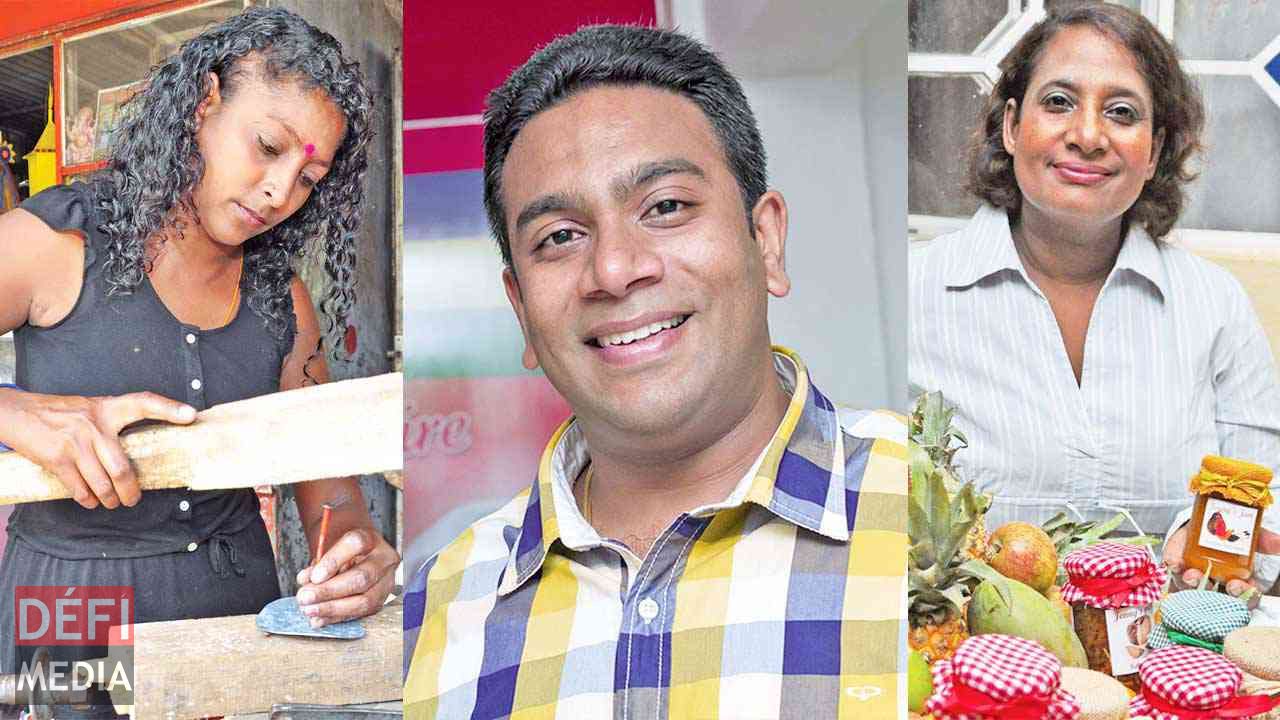
Many businesses tend to be in the hands of a single family. The helms would be passed on to successive generations. These types of enterprises come in varying shapes and sizes, ranging from micro businesses to conglomerates and provide employment to a large number of persons.
Publicité
To ensure the continuity of family businesses, many Mauritians are likely to take over from their parents. If for some of them, it is an obligation, for most however, they do it out of a passion they most likely caught from their parents and that has been transmitted from generation to generation. But in both cases, what is more important is to innovate and adapt to market evolution. The country’s economic landscape is littered with family businesses and they make up a sizeable part of economic activities. So what ensures the longevity of family-run business and how do they cope with the future? News on Sunday met with three entrepreneurs to understand their day to day operations
Davina Seevathean, Tinsmith: “My father is my inspiration”
As a child, when asked what job she wanted to do, Davina Seevathean would typically reply: “The job of my dad, tinsmith.” Today, aged 36, she has managed to integrate this male dominated field. Davina Seevathean grew up watching his father work in his workshop in Bambous. And through this admiration, she developed a passion for this trade. Watering cans, piggy banks, buckets, cake pans, mailboxes, lightning rods, and oil lamps. These are some of the objects that she undertakes daily with the use of aluminium or tin as raw material.
“Earlier, my father worked a lot with tin, hence the name tinsmith. But nowadays, we use more steel and aluminium, because tin is hard to find,” she says. According to her, making a watering can is the most difficult task for a metal worker, because there are so many parts that need to be adjusted.
For five years, she also manufactured decorative items. “I found that Mauritians and tourists love decorative items made of aluminium,” says Davina. Besides, she often participates in fairs and exhibitions to make her products known to the public. “I must say that the customer feedback is very satisfying,” she says. Married and mother of two children, Davina Seevathean says she also has the support of her husband who works in the Civil Service.
Davina Seevathean is proud to have taken over her father’s trade. “All my three brothers adopted this trade,” she highlights. Her message for women who wish to become entrepreneurs: “Do not be ashamed to practice a profession dominated by men. Moreover it is a sign of courage, dare and above all, respect.”
Mootien Krishna, Director of Mayil Spices: Building on past experiences for the future
Mootien Krishna grew up witnessing the daily sacrifices of his parents in the production of spices. After taking the reins of Mayil Spices, the company went into high gear. Spices are essential and emblematic of Mauritian cuisine. And for almost 30 years, the Mayil brand, which means peacock in Tamil, has a special place in almost every Mauritian home. The story begins in 1987. “My maternal grandmother was preparing curry powder for neighbours for which there was a high demand,” recalls Krishna. His father, who was a policeman, had the idea to market the products prepared by his mother-in-law in plastic bags. Then, the Moutien family turned the home into a small workshop.
Mayil products gradually made their way to supermarkets’ shelves. With the increase in demand and sales, the company diversified its range of products. After college, the young Krishna headed to Malaysia for a degree in management and marketing. Finally, in 2003, he decided to join the family business. “There was nothing more appropriate than tranferring the knowledge I had acquired, in consolidating the family business,” he says.
Things were not as easy as he expected and he had to adapt. Change is something perpetual, he says, and every day brings new challenges. “I define progress as building upon the experience of the past. We must understand our past in order to face the future,” he says. Family businesses are highly complex, says Krishna. Thus the heightened importance of innovating. In that vein, he launched the Dubon brand in 2013, and the Thaali brand in the following year. Today, the company distributes 188 referenced Mayil products, 38 Dubon products and 38 Thaali products.
Krishna is influenced by the Asian entrepreneurship culture. “Apart from my ideas about product and market diversification, my greatest contribution to the company, is to have changed dramatically the work culture,” says the businessman.
Jenny Marie Monty: Flavours of jams from her childhood
Jenny Marie Monty is an entrepreneur at heart. Her passion: making typical and local jams as her mother and grandmother. Today the brand ‘Jenny Jam’ is also present in hotels.
Jenny has developed a passion for making jam when she was spending her school holidays with her grandmother in Grand Gaube. “My grandparents were very passionate about growing different types of tropical fruits. In their orchard, we could find plenty of pineapples, avocados, mangoes, and guavas, among others,” she recalls. For Jenny Marie Monty, it was a great pleasure watching her grandmother preparing pickles, jams, candies or crystallized fruits. “For my grandma, making pickles, crystallised fruits and jam was a method to keep the surplus of fruits in the orchard for months,” says our interlocutor.
It was only after her marriage that Jenny Marie Monty decided to put into practice the skills of her grandmother. “At first, I used to do it as a passion. Therefore, I was preparing jam for the family, neighbours and friends,” she says. Later, in 2009, after discovering programmes of the National Women Entrepreneur Council in the media to promote women empowerment, she decided to move forward with her passion in a more professional way. Once her children started to become independent, an opportunity opened up for her. For this new adventure, she could count on the support of her husband.
“Without any delay, I began to follow several culinary courses, including healthy eating with the Agricultural Research and Extension Unit,” she emphasises. Her speciality: sugar-free jam. “I make jam in a natural way, without preservatives or chemical products for conservation,” Jenny says. Who says people suffering from diabetes cannot consume jam? Jenny has also targeted this type of consumers. “Nowadays, I also prepare sugar-free jams which are in high demand. Even those who do not have diabetes prefer the sugar-free jam. This shows how people are concerned about their health,” she highlights.

Notre service WhatsApp. Vous êtes témoins d`un événement d`actualité ou d`une scène insolite? Envoyez-nous vos photos ou vidéos sur le 5 259 82 00 !

























